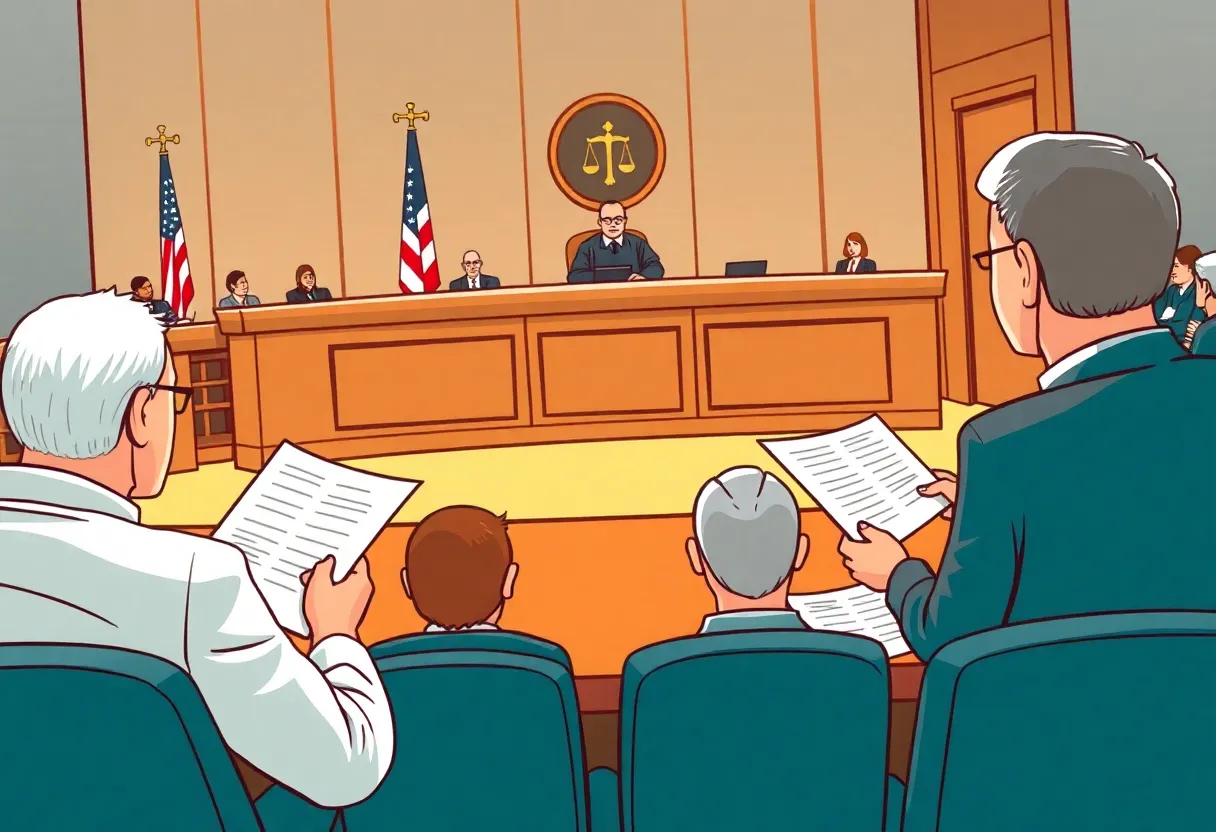News Summary
A U.S. District Judge has issued a temporary restraining order halting the distribution of $75 million in HUD grants for homeless housing due to new, controversial eligibility criteria. The lawsuit, submitted by advocacy organizations, argues the changes violate congressional authority and unfairly target vulnerable populations. Critics highlight the impact on funding for jurisdictions that have differing policies on immigration and gender identity matters. The ruling allows time for legal review as deadlines for grant applications approach.
Providence, Rhode Island – A significant legal development occurred on September 12, as U.S. District Judge Mary McElroy issued a temporary restraining order against the U.S. Department of Housing and Urban Development (HUD). The ruling effectively halts the agency from distributing $75 million in grants intended for housing the homeless, which were set to expire at the end of September.
Judge McElroy’s order comes in response to new eligibility criteria put in place by HUD on September 5. The judge determined that HUD had acted unlawfully by exceeding the authority granted to it by Congress, thereby causing concern about the chaotic implementation of these new criteria. The ruling allows time for legal proceedings to unfold regarding the revised guidelines.
The lawsuit challenging the new HUD criteria was launched by the National Alliance to End Homelessness and the Women’s Development Corporation, which argued that the changes posed a serious threat to funding for vulnerable populations. The pressing deadline for grant applications added urgency to their request for judicial intervention.
According to the newly established criteria, applicants seeking housing grants were required to adhere to the Trump administration’s positions on various issues, including immigration enforcement and gender identity matters. Specifically, organizations operating within “sanctuary” jurisdictions—locations that limit cooperation with federal immigration control—became ineligible for funding. Additionally, applicants were obliged to affirm the belief that sex is not a mutable characteristic, effectively excluding those who support a more flexible understanding of gender.
Critics of the revised guidelines expressed concern that HUD was effectively “blackballing” organizations based on their local and state policies. Legal representatives for the plaintiffs argued that the new criteria not only interrupted the flow of essential funding but also violated constitutional principles by undermining Congress’s control over federal expenditure.
The Justice Department defended HUD’s actions, asserting that the agency possesses broad authority to impose stipulations on funding. They claimed that there had been no procedural violations. However, Judge McElroy indicated that the rapid and complicated nature of the changes warranted serious scrutiny. She emphasized the potential for irreparable harm should the new criteria come into effect, particularly for organizations dependent on federal housing funding.
Under the revised criteria, an important $7 million grant designated for the Women’s Development Corporation to assist individuals escaping domestic violence became ineligible. Additionally, the short turnaround time of just one week for new grant applications was deemed unrealistic, given the significant alterations in funding eligibility.
It is reported that projects across 36 states, Puerto Rico, and the District of Columbia may now be rendered ineligible for HUD’s Continuum of Care Build grants due to these stringent new criteria. The changes also included prohibitions on funding for jurisdictions that support harm reduction services for individuals grappling with substance abuse issues, creating a landscape that has been compared to “redlining,” which systematically excludes certain communities from federal resources.
Legal representatives highlighted the risk posed by these new requirements, with many programs reliant on federal support now at risk of cessation due to changes imposed by HUD. Legal proceedings will continue, with a deadline of October 6 set for HUD to publish reasons for waiving the standard notice period. Judge McElroy has indicated that she may favor conducting in-person hearings as the case progresses, underscoring the importance of these decisions for vulnerable communities dependent on federal housing funds.
Deeper Dive: News & Info About This Topic
HERE Resources
WDC Sues HUD Over Changes to Housing Grant Eligibility
Additional Resources
- Rhode Island Current: Federal Judge Blocks HUD
- Providence Journal: Federal Judge Blocks HUD Funding
- Newsweek: Judge Blocks HUD Policy
- Wikipedia: U.S. Department of Housing and Urban Development
- Google Search: HUD Grant Funding

Author: STAFF HERE PROVIDENCE WRITER
The PROVIDENCE STAFF WRITER represents the experienced team at HEREProvidence.com, your go-to source for actionable local news and information in Providence, Providence County, and beyond. Specializing in "news you can use," we cover essential topics like product reviews for personal and business needs, local business directories, politics, real estate trends, neighborhood insights, and state news affecting the area—with deep expertise drawn from years of dedicated reporting and strong community input, including local press releases and business updates. We deliver top reporting on high-value events such as WaterFire, Rhode Island International Film Festival, and Rhode Island Comic Con. Our coverage extends to key organizations like the Greater Providence Chamber of Commerce and Providence Warwick Convention & Visitors Bureau, plus leading businesses in finance and manufacturing that power the local economy such as Citizens Financial Group and Textron. As part of the broader HERE network, we provide comprehensive, credible insights into Rhode Island's dynamic landscape.





